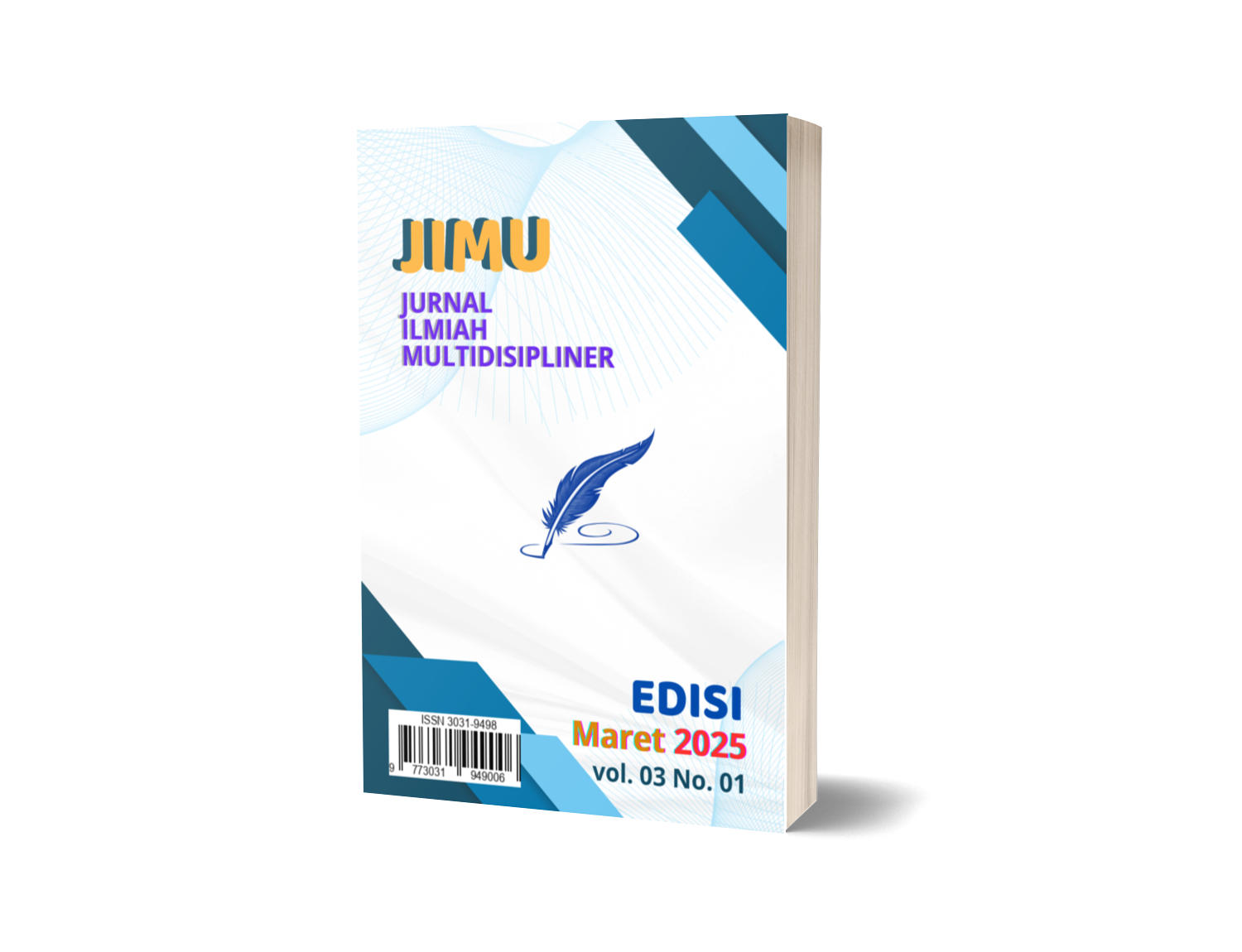Accounting for Waqf in the Digital Era: A Systematic Literature Review on the Integration of Sharia Principles and Islamic Fintech
Kata Kunci:
waqf, accounting, Islamic fintech, Sharia principles, blockchain, transparency, sustainabilityAbstrak
This research undertakes a systematic literature review (SLR) to investigate the evolution of waqf accounting within the context of the digital era, emphasizing the incorporation of Sharia principles alongside Islamic fintech. A comprehensive analysis was conducted on 62 scholarly articles published from 2015 to 2024, sourced from esteemed academic databases. The findings indicate that waqf accounting is experiencing a significant metamorphosis propelled by technological advancements and a heightened demand for transparency and social accountability. Prominent themes discerned include blockchain-enabled waqf accounting, digital crowdfunding initiatives, Sharia-compliant financial reporting frameworks, and the complexities of regulatory compliance. Furthermore, the study underscores the discrepancies between existing accounting standards and the distinctive attributes of waqf assets. Proposals are advanced to align Sharia-based accounting frameworks with international standards and to utilize Islamic fintech to enhance the transparency and sustainability of waqf institutions.
Unduhan
Referensi
Alourani, A., & Khan, S. (2024). A blockchain and artificial intelligence based system for halal food traceability. arXiv. https://doi.org/10.48550/ARXIV.2410.07305
Alsadi, N. (2025). The convergence of blockchain technology and islamic economics: Decentralized solutions for shariah-compliant finance. arXiv. https://doi.org/10.48550/ARXIV.2501.02263
Asyari, A., Hoque, M.E., Susanto, P., Begum, H., Awaluddin, A., Marwan, M. and Mamun, A.A. (2024), "Online cash waqf behavioral intention: the role of knowledge of cash waqf and trust", Journal of Islamic Marketing, Vol. 15 No. 11, pp. 2864-2890. https://doi.org/10.1108/JIMA-07-2023-0224
Elmahgop, F., Alsulami, F., Mohammed, M. G. A., Abdel-Gadir, S., & Elhassan, T. (2025). The socio-economic impacts of waqf investment funds as a model for sustainable financing in saudi arabia. Sustainability, 17(9), 3805. https://doi.org/10.3390/su17093805
Fahad, M., & Khan, A. (2022). Green sukuk impetus: A systematic review. SSRN Electronic Journal. https://doi.org/10.2139/ssrn.4280433
Ferrer, R., Benítez, R., & Bolós, V. J. (2021). Interdependence between green financial instruments and major conventional assets: A wavelet-based network analysis. Mathematics, 9(8), 900. https://doi.org/10.3390/math9080900
Harahap, B., Risfandy, T., & Futri, I. N. (2023). Islamic law, islamic finance, and sustainable development goals: A systematic literature review. Sustainability, 15(8), 6626. https://doi.org/10.3390/su15086626
Hilario-Caballero, A., Garcia-Bernabeu, A., Salcedo, J. V., & Vercher, M. (2020). Tri-criterion model for constructing low-carbon mutual fund portfolios: A preference-based multi-objective genetic algorithm approach. arXiv. https://doi.org/10.48550/ARXIV.2006.11888
Izadin, A.A.I., Mohd. Yusof, R. and Mazlan, A.R. (2025), "The integration of Maqasid Shariah in evaluating stablecoins and traditional cryptocurrencies for Islamic portfolios diversification", International Journal of Islamic and Middle Eastern Finance and Management, Vol. 18 No. 3, pp. 577-597. https://doi.org/10.1108/IMEFM-08-2024-0380
Junarti, Alhabshi,S.M., Amirsyah, and Mardikad,I.H. (2024). Integrating Social Business for Sustainable Impact: A Systematic Literature Review in the Context of Waqf. Journal of Islamic Finance, Vol. 13 No. 2 (2024) 149-159. IIUM Institute of Islamic Banking and Finance.
Kasmon (a), B., Ibrahim, S.S., Daud, D., Raja Hisham, R.R.I. and Dian Wisika Prajanti, S. (2025), "FinTech application in Islamic social finance in Asia region: a systematic literature review", International Journal of Ethics and Systems, Vol. 41 No. 1, pp. 213-237. https://doi.org/10.1108/IJOES-07-2023-0155
Kasmon(b), B., Ibrahim, S.S., Daud, D., Raja Hisham, R.R.I. and Ratnasari, R.T. (2025), "Future behavior in waqf digitalization: integrating UTAUT and DIT theories", Journal of Islamic Marketing, Vol. 16 No. 4, pp. 1051-1072. https://doi.org/10.1108/JIMA-03-2024-0111
Khan, W. Z., Zahid, M., Aalsalem, M. Y., Zangoti, H. M., & Arshad, Q. (2018). Ethical aspects of internet of things from islamic perspective. arXiv. https://doi.org/10.48550/ARXIV.1806.11386
Maniam, S. (2024), "Determinants of Islamic fintech adoption: a systematic literature review", Journal of Islamic Marketing, Vol. 15 No. 11, pp. 2916-2936. https://doi.org/10.1108/JIMA-11-2023-0373
Medias, F., Rosari, R., Susamto, A.A. and Ab Rahman, A. (2025), "What roles do stakeholders play in waqf innovation: a case study at Muhammadiyah organization, Indonesia", International Journal of Islamic and Middle Eastern Finance and Management, Vol. ahead-of-print No. ahead-of-print. https://doi.org/10.1108/IMEFM-08-2024-0432
Megat, P.A., Al-Shaghdari, F., Bin Ngah, B. and Abdelfattah, S.S. (2024), "Assessing the predictive benefits of Waqftech smart contracts on corporate waqf crowdfunding among Malaysian enterprises", Journal of Islamic Marketing, Vol. 15 No. 5, pp. 1303-1325. https://doi.org/10.1108/JIMA-08-2023-0262
Mohamed, A. and Akande, A.E. (2025), "Waqf-led buildings and green infrastructure role in environmental sustainability: understanding critical gaps in current research landscape", Management & Sustainability: An Arab Review, Vol. ahead-of-print No. ahead-of-print. https://doi.org/10.1108/MSAR-09-2024-0152
Muryanto, Y.T. (2023), "The urgency of sharia compliance regulations for Islamic Fintechs: a comparative study of Indonesia, Malaysia and the United Kingdom", Journal of Financial Crime, Vol. 30 No. 5, pp. 1264-1278. https://doi.org/10.1108/JFC-05-2022-0099
Napitupulu, R.M., Sukmana, R. and Rusydiana, A.S. (2024), "Governance of Islamic social finance: learnings from existing literature", International Journal of Islamic and Middle Eastern Finance and Management, Vol. 17 No. 3, pp. 552-571. https://doi.org/10.1108/IMEFM-06-2023-0222
Nofianti, L., Mukhlisin, M. and Irfan, A. (2024), "Cash waqf innovation in Islamic financial institutions and its governance issues, case studies: Indonesia, Malaysia, Türkiye", Journal of Islamic Accounting and Business Research, Vol. ahead-of-print No. ahead-of-print. https://doi.org/10.1108/JIABR-12-2023-0420
Qing, C., & Jin, S. (2023). Does esg and digital transformation affects corporate sustainability? The moderating role of green innovation. arXiv. https://doi.org/10.48550/ARXIV.2311.18351
Qizam, I., Berakon, I. and Ali, H. (2025), "The role of halal value chain, Sharia financial inclusion, and digital economy in socio-economic transformation: a study of Islamic boarding schools in Indonesia", Journal of Islamic Marketing, Vol. 16 No. 3, pp. 810-840. https://doi.org/10.1108/JIMA-03-2024-0108
Raimi, L. and Bamiro, N.B. (2025), "Role of Islamic sustainable finance in promoting green entrepreneurship and sustainable development goals in emerging Muslim economies", International Journal of Social Economics, Vol. ahead-of-print No. ahead-of-print. https://doi.org/10.1108/IJSE-05-2024-0408
Shaikh, I.M. and Amin, H. (2025), "Technology acceptance determinants and consumer innovativeness influence on ASNAFS’ acceptance towards the use of e-wallet", International Journal of Ethics and Systems, Vol. 41 No. 1, pp. 238-257. https://doi.org/10.1108/IJOES-06-2023-0126
Widiastuti, T., Mawardi, I., Samer Ali, A.-S., Atiya, N., Rani, L.N., Robani, A.B. and Al Mustofa, M.U. (2025), "Determinant factors for online cash waqf intention among Muslim millennial generation", Journal of Islamic Marketing, Vol. 16 No. 1, pp. 258-289. https://doi.org/10.1108/JIMA-12-2023-0408
Zaman, B., & Sedera, D. (2016). Green information technology as administrative innovation - organizational factors for successful implementation: Literature review. arXiv. https://doi.org/10.48550/ARXIV.1606.03503









